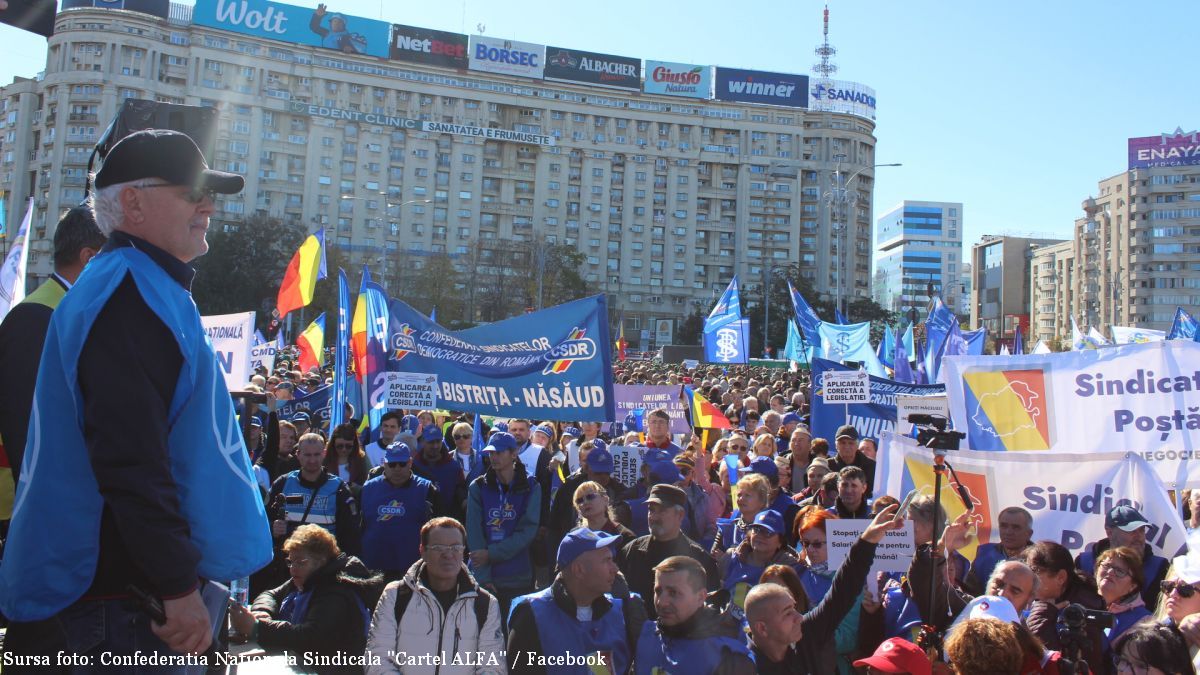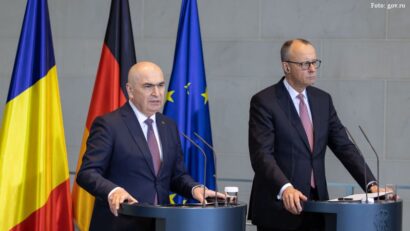Trade union protests in Bucharest
The major trade union confederations have protested in front of the government headquarters in Bucharest, unhappy with the austerity measures adopted so far.

Roxana Vasile, 30.10.2025, 13:50
Thousands of employees in the administration, education and healthcare sectors in Romania took to the streets on Wednesday to ask for an increase in salaries and pensions, fair taxation and an end to the austerity measures they see as unjustified. That is because since summer, in an attempt to reduce the country’s deficit, the largest in the European Union, the broad coalition government in Bucharest has taken drastic measures that mainly affect ordinary people. It is not austerity, but responsible measures that had to be put into practice, Prime Minister Ilie Bolojan said during a report, about the increase in VAT and other taxes, the higher excise duties, the reduction of jobs in the public system or the freezing of salaries and pensions, all against the backdrop of galloping inflation that has further led to the decline in the Romanians’ living standards, already among the lowest in the EU.
The excessive deficit is not the fault of the citizens, but of political decision makers. The latter must understand that concrete, fair and urgent measures are needed to protect workers, said the president of the national trade union confederation Cartel Alfa, Bogdan Hossu. Trade unionists are also unhappy with the government’s refusal to increase the gross minimum salary in the economy and the intention to keep it, also in 2026, at the current value, that is 4,050 lei (the equivalent of just over 800 euros).
In fact, on Wednesday, while protesters were shouting their discontent in the streets, members of the National Tripartite Council for Social Dialogue, which brings together representatives of the Government, employees and employers, were holding talks about the minimum salary. After more than two hours, the discussions ended without any result. Only the idea of increasing the value of meal vouchers from January 1 was agreed upon. As regards an increase in the minimum salary in the economy, Prime Minister Ilie Bolojan warned that it would lead to cascading salary increases in the public sector that the country cannot afford.
Moreover, given that labor productivity went up this year by only 5%, and salaries by over 9%, a salary increase that is not based on an increase in labor productivity will cause additional inflation that will especially affect those with low incomes.
Representatives of employers’ associations also advocated for maintaining the current minimum salary level next year. The Representative of Small and Medium-sized Enterprises in the Tripartite Council drew attention to the fact that most SMEs are unable to support an increase in this amount, as they are already affected by the fiscal measures taken by the government in the last period. The consultations will continue, with the Government to make a decision on the minimum salary by the end of November. (EE)






























